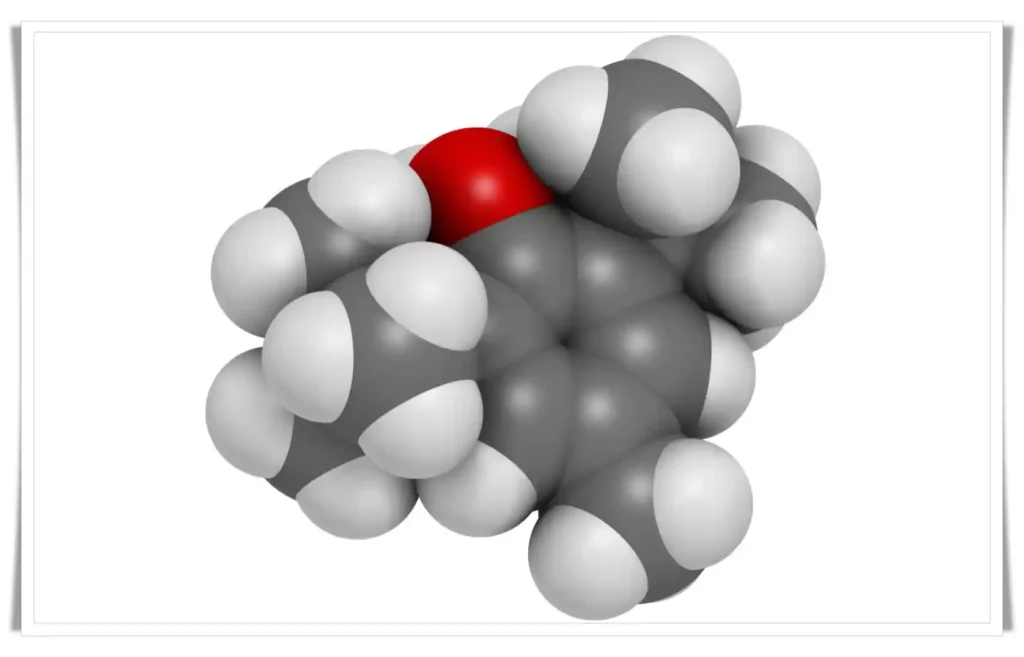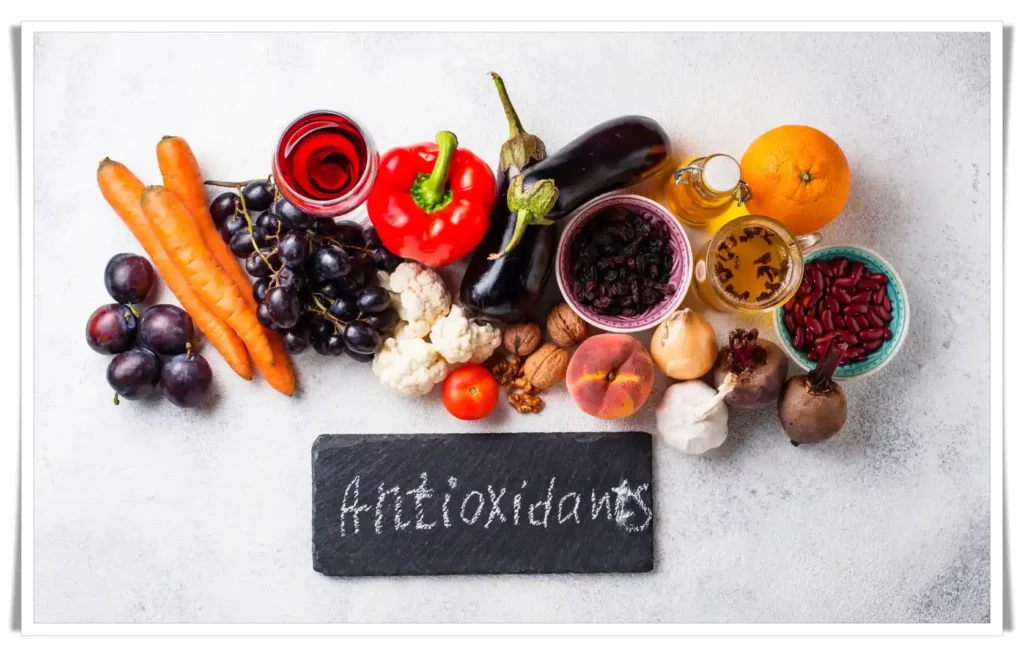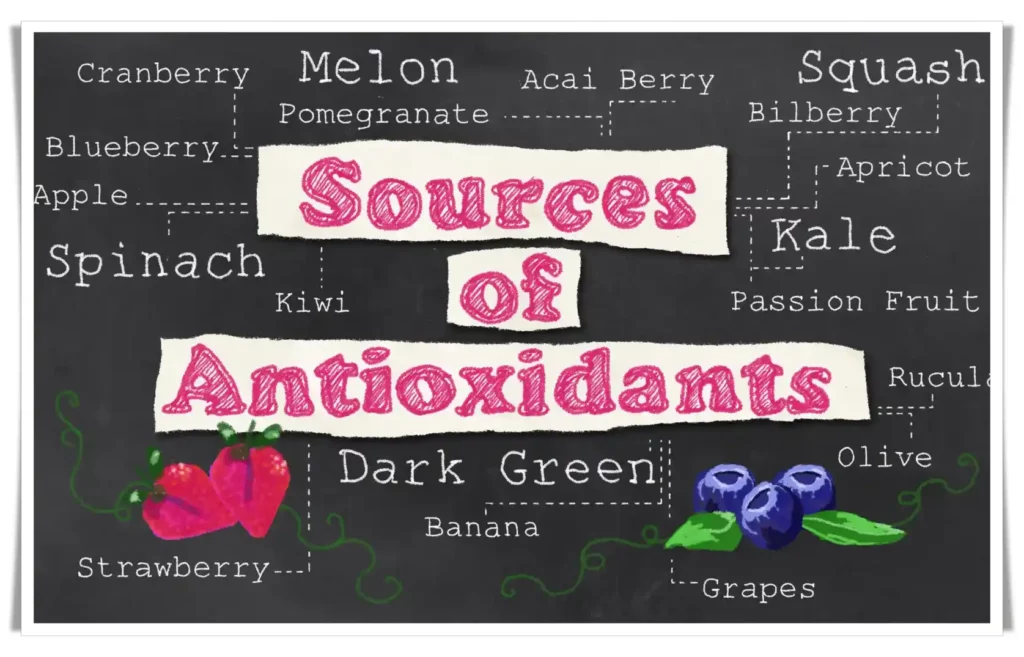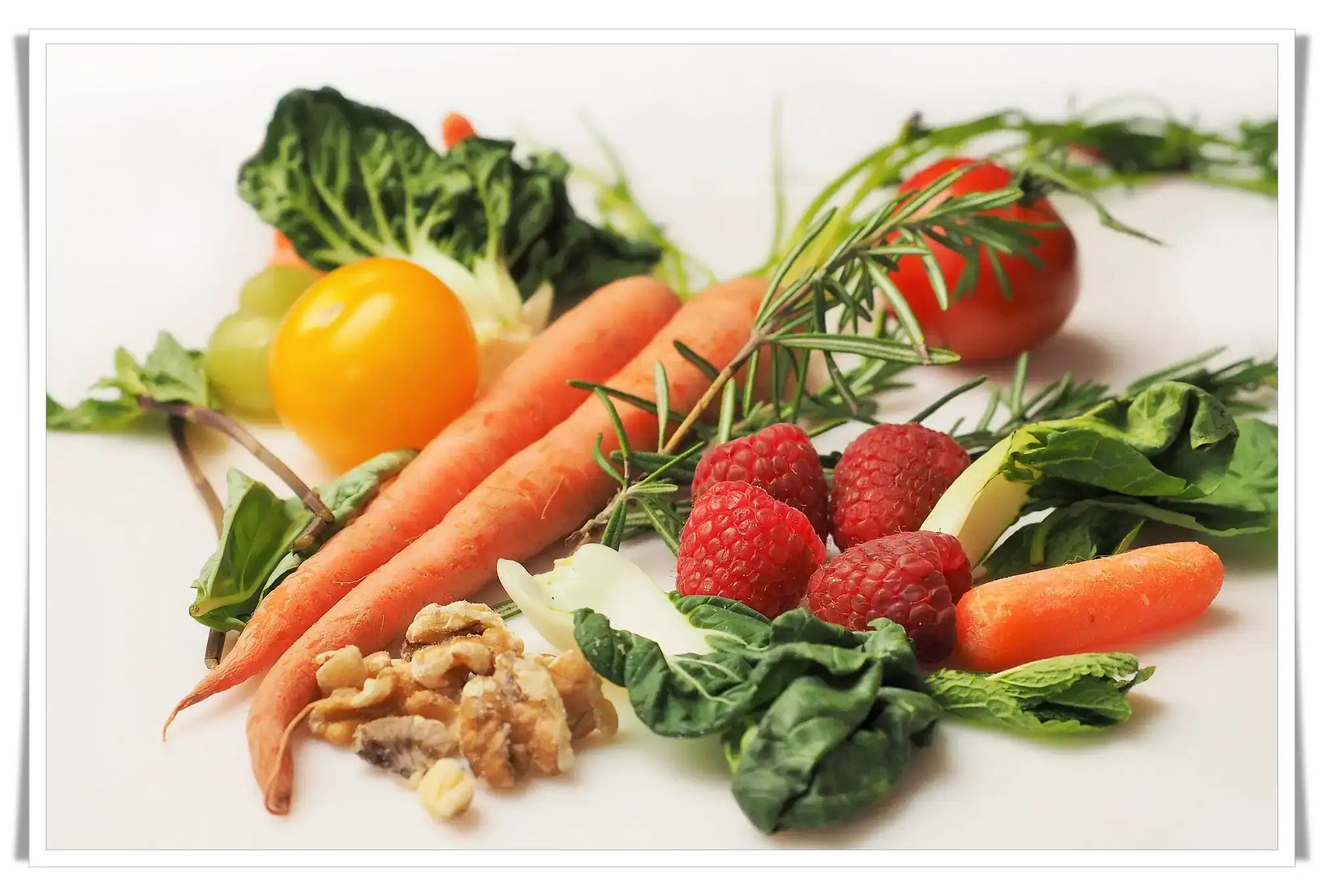Introduction
I've spent over two months exploring the intersection of health and nutrition, and one topic that stands out is the antioxidants secret in weight loss. In this comprehensive guide, we'll explore the role antioxidants play in weight management, debunking myths and revealing facts grounded in science.
Understanding Antioxidants
Are a diverse group of compounds essential for maintaining cellular integrity in the face of attacks by free radicals – those unstable molecules our bodies inevitably produce during various biochemical processes. The role of antioxidants is multifaceted and integral to the body's overall health and proper functioning.
At their core, antioxidants are molecules capable of slowing or preventing the oxidation of other molecules. Oxidation is a chemical reaction that can produce free radicals, leading to chain reactions that may damage cells. Free radicals are formed when atoms or molecules gain or lose electrons, resulting in unstable and reactive entities. These radicals can arise from everyday activities, such as exercise and digestion, as well as from exposure to external stressors like pollution, UV radiation, and cigarette smoke.
Empower Your Health Journey – Explore My Free Apps for a Vibrant, Healthier Lifestyle Today!
The human body has a complex system for managing free radicals and oxidative stress, but sometimes it’s not enough. This is where dietary antioxidants come into play. These can be found in a variety of foods, predominantly in fruits and vegetables, and they supplement the body's defence system against free radical damage.
Common antioxidants include vitamins like vitamin C and E, flavonoids, and minerals such as selenium. Vitamin C, for example, is known for its ability to donate electrons and neutralise free radicals, thus preventing them from causing cellular damage. Vitamin E, on the other hand, is a lipid-soluble antioxidant that protects cell membranes from oxidative damage. Flavonoids, a diverse group found in many fruits and vegetables, offer various protective effects against oxidative stress.
Apart from protecting against cellular damage, antioxidants also play a role in bolstering the immune system, reducing inflammation, and potentially lowering the risk of developing certain diseases, including some types of cancer and heart disease. The balanced interplay between antioxidants and free radicals is crucial for maintaining health and preventing oxidative stress-related diseases.
The Impact of Free Radicals
The human body, a complex assembly of billions of cells, faces a continual onslaught from chemicals known as free radicals. These molecules, highly reactive and unstable, pose a significant threat to cellular structures and genetic material. The consequences of free radical damage are far-reaching and can lead to a multitude of health issues.
Free radicals are atoms or molecules that have unpaired electrons, which makes them highly reactive. In their quest to stabilize themselves, they seek out and react with other molecules, causing oxidative stress in the body. This oxidative stress
can result in damage to cell membranes, enzymes, and DNA, which can lead to cellular dysfunction and the onset of various diseases.
The production of free radicals occurs through both endogenous (internal) and exogenous (external) sources. Internally, free radicals are produced as natural byproducts of cellular processes, such as the metabolism of food for energy. While the body has mechanisms to manage these byproducts, factors such as aging can diminish their effectiveness.

Externally, lifestyle choices and environmental factors play a significant role in the production of free radicals. Poor nutrition, particularly diets high in processed foods, fats, and sugars, can exacerbate the production of free radicals. Environmental pollution, exposure to tobacco smoke, and ultraviolet radiation are also major contributors to the external generation of these molecules. Even stress, both physical and psychological, can increase the production of free radicals in the body.
The cumulative effect of free radical damage is not to be underestimated. It is implicated in the aging process and is believed to contribute to the development of various chronic diseases, including cardiovascular disease, cancer, diabetes, and neurodegenerative disorders like Alzheimer’s disease. The damage to DNA by free radicals can lead to mutations and malfunctions in cell replication, potentially resulting in cancerous growth.
Antioxidants and Weight Loss
The intriguing relationship between antioxidants and weight loss forms the crux of our discussion. This connection, often referred to as the "antioxidants secret," is pivotal in understanding how weight management and overall health are intertwined.
Antioxidants, by their nature, are substances that can prevent or slow damage to cells caused by free radicals. These free radicals are produced as a byproduct of normal cell processes or from external stressors like pollution and UV exposure. When the body is unable to adequately neutralize these free radicals, oxidative stress occurs, which can lead to cell damage and inflammation. This state of oxidative stress has been linked to various metabolic disorders, including obesity and diabetes.
In the context of weight loss, the role of antioxidants is multifaceted. Firstly, oxidative stress has been found to affect metabolic rate—the rate at which the body burns calories. Increased oxidative stress can lead to a slower metabolism, making it harder to lose weight. Antioxidants help in reducing this stress, thereby potentially aiding in maintaining a healthier metabolic rate.
Secondly, certain antioxidants have been shown to influence fat metabolism and insulin sensitivity. For example, some studies suggest that antioxidants like vitamins C and E can improve insulin sensitivity, making it easier for the body to use glucose from the bloodstream and reducing the risk of insulin resistance—a common precursor to weight gain and diabetes.

Furthermore, antioxidants can play a role in reducing inflammation, a condition often associated with obesity. Chronic inflammation can lead to weight gain and make it more difficult to lose weight. By reducing inflammation, antioxidants not only aid in weight loss but also improve overall health.
Lastly, it's important to note that antioxidants can indirectly influence weight management by promoting a healthier lifestyle. Foods high in antioxidants, such as fruits and vegetables, are also generally lower in calories and more nutrient-dense compared to processed foods. Incorporating these foods into a diet not only provides the body with essential antioxidants but also helps in maintaining a healthy weight.
Food Rich In Antioxidants Acting For Weight Loss
Here's a comprehensive table showcasing various foods rich in antioxidants that are also beneficial for weight loss. This table includes the type of antioxidant present, the specific health benefits related to weight loss, and serving suggestions to incorporate these foods into a diet:
| Food Item | Type of Antioxidant | Weight Loss Benefits | Serving Suggestions |
|---|---|---|---|
| Berries (blueberries, raspberries, strawberries) | Anthocyanins, Vitamin C | Low in calories, high in fiber, aids in digestion | Add to yoghurt, cereals, or enjoy as a snack |
| Dark Chocolate | Flavanols, Polyphenols | Reduces cravings, mood enhancer, high in fiber | A small square as a treat; choose at least 70% cocoa |
| Green Tea | Catechins, Flavonoids | Boosts metabolism, aids fat burning | Drink 2-3 cups daily; avoid adding sugar |
| Nuts (almonds, walnuts) | Vitamin E, Omega-3 Fatty Acids | Healthy fats, satiety, controls hunger | A small handful as a snack; avoid salted variants |
| Spinach and Kale | Lutein, Vitamin C | Low in calories, high in fiber, nutrient-dense | Use in salads, smoothies, or steamed as a side |
| Whole Grains (quinoa, oats) | Polyphenols, Fiber | High in fiber, keeps you full longer, stabilizes blood sugar | As a breakfast cereal or in salads |
| Salmon | Omega-3 Fatty Acids, Selenium | Healthy fats, lean protein, satiety | Grilled or baked with herbs |
| Sweet Potatoes | Beta-Carotene, Vitamin A | High in fiber, regulates blood sugar | Baked or boiled as part of a meal |
| Tomatoes | Lycopene, Vitamin C | Low in calories, aids in hydration, high in fiber | Fresh in salads or as a roasted side dish |
| Garlic | Allicin, Selenium | Boosts metabolism, reduces fat storage | Use in cooking for flavoring |
| Avocado | Vitamin E, Monounsaturated Fats | Healthy fats, increases feeling of fullness | In salads, on toast, or as a guacamole dip |
| Citrus Fruits (oranges, grapefruits) | Vitamin C, Flavonoids | Low in calories, high in fiber, aids in fat burning | Fresh as a snack or in fruit salads |
This table provides a variety of options for those looking to incorporate antioxidant-rich foods into their diet for weight loss purposes.

How Antioxidants Contribute to Weight Loss
- Neutralizing Free Radicals: Antioxidants counteract free radicals, reducing oxidative stress which is linked to obesity and metabolic disorders.
- Improving Metabolism: Certain antioxidants can enhance metabolic rate, making the body more efficient at burning calories.
- Enhancing Fat Oxidation: Some antioxidants aid in the oxidation of fats, thus promoting fat burning.
- Reducing Inflammation: Chronic inflammation is associated with obesity; antioxidants can help reduce this inflammation, aiding in weight management.
- Improving Insulin Sensitivity: Antioxidants like Vitamin C and E can enhance insulin sensitivity, reducing the risk of obesity-related conditions like insulin resistance.
- Increasing Satiety: Foods rich in antioxidants are often high in fiber, which increases the feeling of fullness and reduces overall calorie intake.
- Supporting Detoxification: Antioxidants support the body's natural detoxification processes, which is vital for maintaining a healthy weight.
Table: Sources and Benefits of Key Antioxidants
| Antioxidant | Sources | Benefits |
|---|---|---|
| Vitamin C | Citrus fruits, berries | Boosts metabolism, skin health |
| Vitamin E | Nuts, seeds | Protects cells, aids muscle recovery |
| Selenium | Seafood, Brazil nuts | Improves thyroid function |
| Zinc | Meat, legumes | Supports immune system |
Scientific Study: A Brief Overview of Oxidative Stress in Adipose Tissue with a Therapeutic Approach to Taking Antioxidant Supplements
The study titled "A Brief Overview of Oxidative Stress in Adipose Tissue with a Therapeutic Approach to Taking Antioxidant Supplements" from the Faculty of Sport Sciences at Waseda University, Japan, offers insightful observations on the role of oxidative stress in adipose (fat) tissue and how antioxidants could potentially play a therapeutic role.
Key Points from the Study:
- Oxidative Stress and Adipose Tissue: The study highlights that oxidative stress in adipose tissue is a significant factor in the development of obesity. Oxidative stress occurs when there is an imbalance between free radicals and antioxidants in the body, leading to cell and tissue damage.
- Impact on Obesity: The research points out that the accumulation of oxidative stress in adipose tissue can contribute to the worsening of obesity. This is because oxidative stress affects the function and life cycle of fat cells, influencing fat accumulation and the development of obesity-related disorders.
- Antioxidant Supplements: The study discusses the potential benefits of using antioxidant supplements as a therapeutic approach. It suggests that these supplements might help in managing oxidative stress in adipose tissue, thereby impacting obesity.
- Diet and Antioxidants: Health researchers involved in the study have identified diet as a critical factor in managing oxidative stress. A diet rich in antioxidants is suggested to potentially reduce oxidative stress in the body and improve obesity-related conditions.
- Potential for Therapeutic Use: The study opens up possibilities for further research into the use of antioxidant supplements as a therapeutic intervention for obesity, especially considering the relationship between oxidative stress and adipose tissue.
This study provides a valuable perspective on the intersection of oxidative stress, adipose tissue, and obesity, and underscores the potential role of antioxidants, both dietary and supplemental, in managing these conditions.
For more detailed information and insights, you can read the full study here.
FAQs on Antioxidants and Weight Loss
1. How do antioxidants aid in weight loss?
Antioxidants help in balancing the body’s metabolic processes, which can indirectly contribute to weight management. They reduce oxidative stress, which can affect metabolism and fat storage. By neutralizing free radicals, antioxidants can improve metabolic efficiency and energy use in the body.
2. Can antioxidants alone lead to weight loss?
While antioxidants play a supportive role, they cannot independently cause significant weight loss. A balanced diet and regular exercise are crucial for effective weight loss. Antioxidants should be part of a comprehensive health and diet strategy.
3. What are the best sources of antioxidants for weight loss?
Fruits, vegetables, nuts, seeds, whole grains, and green tea are excellent sources of antioxidants. Berries, dark leafy greens, and brightly colored vegetables are particularly rich in these compounds.
4. Are antioxidant supplements as effective as natural sources?
While supplements can help, they should not replace natural sources. Whole foods provide a complex blend of nutrients and antioxidants in a balanced form, which is often more beneficial than isolated compounds in supplements.
5. How much antioxidants should one consume for weight loss?
There is no specific recommended daily allowance for antioxidants for weight loss. It's best to consume a variety of antioxidant-rich foods as part of a balanced diet.
Here is a sequence diagram that illustrates the absorption and function of antioxidants in the body:
Conclusion
The journey into understanding the antioxidants secret in weight loss is indeed a transformative one. This exploration is far more than just a path to shedding unwanted pounds; it's a gateway to embracing a healthier, more balanced lifestyle.
- Holistic Health Approach: Antioxidants do not just contribute to weight management; they play a pivotal role in overall health. They fight oxidative stress, a culprit in various chronic diseases, and support bodily functions at a cellular level.
- Long-term Benefits: Embracing a diet rich in antioxidants is not a short-term fix but a long-term investment in your health. It’s about making sustainable changes that not only contribute to weight loss but also enhance overall well-being.
- Nutritional Awareness: Incorporating antioxidants into your diet encourages a deeper understanding and appreciation of nutrition. It promotes mindful eating and a greater awareness of the quality of food you consume.
- Beyond Weight Loss: While weight loss can be a significant benefit, the advantages of antioxidants extend to improved skin health, enhanced immune function, and reduced risk of chronic diseases like heart disease and certain cancers.
- Empowerment Through Education: Knowledge about the role of antioxidants empowers individuals to make informed decisions about their diet and lifestyle. This empowerment is key to maintaining a healthy weight and overall health.
- Lifestyle Harmony: Understanding the role of antioxidants aligns with adopting a lifestyle that values balance, where exercise, stress management, and a nutritious diet coexist harmoniously.
- Community and Culture: This journey often leads to a community of like-minded individuals who prioritize health and wellness, fostering a culture of support and shared learning.
Call to Action
Have thoughts or questions? Share your views in the comments below!
Engage with More Resources
Discover sustainable weight loss methods in my article, “How to Lose Weight Sustainably Without Dieting: Here Are Top 5 Tips!”. Also, check out my YouTube video, “The Antioxidant Power of Blueberries in Fighting Heart Disease”.





You’re so awesome! I don’t believe I have read a single thing like that before. So great to find someone with some original thoughts on this topic. Really.. thank you for starting this up. This website is something that is needed on the internet, someone with a little originality!
This is my first time pay a quick visit at here and i am really happy to read everthing at one place
Lovely! This has been an absolutely fantastic post. I appreciate you sharing these specifics.
Thanks to the high-quality content and the administrator’s active involvement, the site’s reputation will undoubtedly improve soon.
Hello, i think that i saw you visited my weblog so i came to ?eturn the favor·I’m trying to find things to improve my web site!I suppose its ok to use some of your ideas!!
Wow, amazing blog layout! How long have you been blogging for? you made blogging look easy. The overall look of your web site is magnificent, as well as the content!
I loved as much as youll receive carried out right here The sketch is tasteful your authored material stylish nonetheless you command get bought an nervousness over that you wish be delivering the following unwell unquestionably come more formerly again since exactly the same nearly a lot often inside case you shield this hike
Hi, good post. Your website appears to be having issues with Internet Explorer. You should look into this since many people will miss your great articles due of this problem, especially since IE is still the most widely used browser.
I loved even more than you will get done right here. The picture is nice, and your writing is stylish, but you seem to be rushing through it, and I think you should give it again soon. I’ll probably do that again and again if you protect this hike.
This is a really good place to read, and I’ve bookmarked it for later. I’m curious how much effort goes into making a webpage this excellent and instructive.
I have been surfing online more than 3 hours today yet I never found any interesting article like yours It is pretty worth enough for me In my opinion if all web owners and bloggers made good content as you did the web will be much more useful than ever before
helloI like your writing very so much proportion we keep up a correspondence extra approximately your post on AOL I need an expert in this space to unravel my problem May be that is you Taking a look forward to see you
Greetings, I admire your writing very much. We maintain a dialog further regarding your post on AOL. I am in need of an expert in this field to solve my problem. Perhaps you could be that individual. I look forward to seeing you.
I truly appreciate your technique of writing a blog. I added it to my bookmark site list and will
This gateway is incredible. The splendid data displays the administrator’s earnestness. I’m overwhelmed and expect more such astounding material.
Wow, marvelous blog structure! How long have
you ever been blogging for? you made blogging glance
easy. The entire glance of your site is excellent, let alone the content!
You can see similar: dobry sklep and here ecommerce
Excellent beat ! I wish to apprentice while you amend your website, how could i subscribe for a
blog website? The account helped me a acceptable deal.
I have been a little bit familiar of this your broadcast provided bright transparent concept I saw similar here: dobry sklep and
also here: sklep internetowy
Hello, I would want to keep in contact with you regarding your writings on AOL because I genuinely appreciate your writing. I’m excited to see you soon. I need a specialist in this area to address my issue. Perhaps you are that somebody.